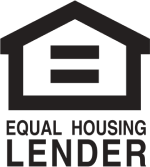If you’re considering purchasing a home, one of the most crucial decisions you’ll face is choosing between a Mortgage Banker and a Mortgage Broker. While they may seem similar, they offer distinct advantages and disadvantages that could significantly impact your home buying journey.
Mortgage Banker
A Mortgage Banker is typically employed by a specific financial institution and offers loans exclusively from that bank. They serve as a single point of contact for all mortgage-related matters, simplifying the process for borrowers who prefer a straightforward approach.
Mortgage Broker
In contrast, a Mortgage Broker works as an intermediary between various lenders and the borrower. They have access to a multitude of loan options and can tailor their recommendations based on your unique financial situation, providing a broader range of choices.
Advantages and Disadvantages
- Banker Pros: Expediency and simplicity, as you engage with one entity.
- Broker Pros: More extensive options, providing flexibility in loan choices.
- Banker Cons: Limited loan products, potentially missing out on better rates elsewhere.
- Broker Cons: Could involve more time and possibly additional fees, as they navigate through various offers.
Conclusion
Ultimately, the choice between a Mortgage Banker and a Mortgage Broker depends on your individual preferences and financial circumstances. If you value a straightforward and quick process, a banker may be more suitable. However, if you’re seeking a variety of options to compare, a broker may better serve your needs.






